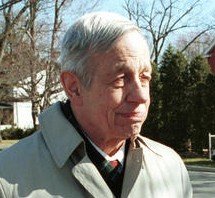America
'Beautiful Mind' mathematician and Nobel laureate dies in car crash

New York, May 24
Mathematician John Nash,
who won the Nobel Prize in 1994 and was the inspiration for the film "A
Beautiful Mind", died on the weekend along with his wife in a New Jersey
taxi accident, media reported. He was 86.
According to reports,
the driver of the cab in which Nash and his 82-year-old wife Alicia were
travelling on Saturday lost control of the vehicle on the New Jersey
Turnpike while trying to pass another car and crashed into a guard rail.
The
couple were both ejected from the vehicle, leading investigators to
believe that they were not wearing seat belts, state police Sgt. Gregory
Williams told the NJ.com news website.
The taxi driver was
injured in the crash and taken to the Robert Wood Johnson University
Hospital in the town of New Brunswick. His injuries are reportedly not
life-threatening.
Nash received the Nobel Prize in economics for
his work in "game theory" and his career as a Princeton professor, along
with his struggle with paranoid schizophrenia, were portrayed by
Russell Crowe in "A Beautiful Mind" which won four Oscars -- including
Best Picture -- in 2002.
"Stunned... my heart goes out to John
& Alicia & family. An amazing partnership. Beautiful minds,
beautiful hearts," the actor tweeted on Sunday.
Nash pursued his
academic career at Princeton and the Massachusetts Institute of
Technology and received the Nobel for applying his revolutionary
mathematical theories to the solution of economic unknowns.
He
had battled mental health problems since his youth and became involved
in assorted controversies during his life, including being accused of
anti-Semitism, which he denied.
Along with his wife, who was of Salvadoran origin, he had campaigned for years to raise public awareness of mental illness.
This
year, Nash, along with Louis Nirenberg, received the Abel Prize,
considered to be the "Nobel Prize of mathematics" and awarded by the
Norwegian Academy of Science and Letters, for his work in partial
differential equations.

























